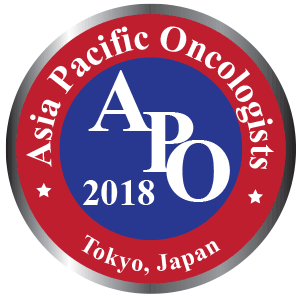
Wassil Nowicky
Ukrainian Anti-Cancer Institute, Austria
Title: The anti-cancer preparation NSC-631570 (UKRAIN) and its effect on pancreatic and colorectal cancer
Biography
Biography: Wassil Nowicky
Abstract
In a controlled randomised study by Prof. Beger et al. in the Ulm University Hospital, Germany, the therapy with NSCâ€631570 and gemcitabine doubled the survival rate in the patients with inoperable advanced pancreatic cancer. The longest survival was 19 months in the group treated with gemcitabine alone, 26 months in the combined group, and in the NSCâ€631570 alone group two patients were alive after 28 months. NSCâ€631570 was well tolerated. The study authors consider further evaluation of NSCâ€631570 as justified whereas the quality of life of the patients improved.
Patients were further observed after the conclusion of the study and it was noted that UKRAIN was well tolerated and could be administered without problem to all patients. UKRAIN brought about a significant increase in survival time in comparison to therapy with gemcitabine alone. Combination therapy with gemcitabine and UKRAIN showed no advantage over monotherapy with UKRAIN. The longest survival in the gemcitabine group was 19 months, 21 months in the gemcitabine+Ukrain group, and in the Ukrain group a patient was still alive after 28 months.
2007 the results of another clinical study by the same research team were published. This time the efficacy of the adjuvant therapy with NSCâ€631570 has been demonstrated in the patients with advanced pancreatic cancer after surgery. The patients were treated with a combination of NSCâ€631570 and gemcitabine. The median survival was 33.8 months and the 5â€year survival rate was 23.3% which is clearly better than results reported in the earlier studies without NSCâ€631570, with the median survival of 20.1 months and the 5â€year survival rate was 21%. Moreover, NSCâ€631570 at therapeutic dose range has only minimal adverse effects, improves the quality of life of patients and can be administered also on outpatient basis. All these features distinguishes this drug favourable compared to the standard cytostatic agents.
In a controlled randomized clinical study by the National Medical University (Kyiv, Ukraine) colon cancer patients were treated with NSCâ€631570 or with 5â€fuorouracil and xâ€ray therapy. The survival rate after 21 months was 78.6% in the NSCâ€631570 group and 33.3% in the group treated with 5â€FU and radiotherapy. Within a randomized study in the Doneck Regional Cancer Center (Ukraine) rectal cancer patients received either highâ€dose radiotherapy and 5â€FU before surgery, or the therapy with NSCâ€631570: one course before surgery (10 mg every second day up to 60 mg) and another course afterwards (up to 40 mg). During following 14 months, relapses occurred in six patients (25%) from the combined group and in 2 patients (8.3%) in the NSCâ€631570 group. Two year relapse rate was 33.3% (8 patients) in the combined group and 16.7% (4 patients) in the NSCâ€631570 group [117]. Now, 11 years after this publication 18 from 24 patients (75%) in the NSCâ€631570 group are still alive.

